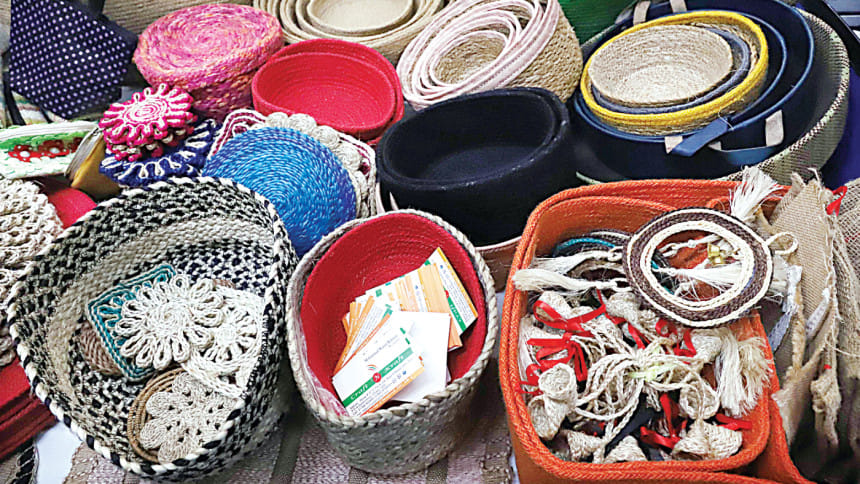Ministry shelves plan to hike fees on jute exports

Just five days after issuing a gazette notification imposing export fees on raw jute and jute products, the government has withdrawn the order to review the decision, following strong concerns from industry stakeholders over what they described as an excessive hike.
After 30 years, the government has revised the revenue fees for the export of raw jute and jute products.
The Ministry of Textiles and Jute issued a gazette notification in this regard on April 16.
According to the notification, the export fee for raw jute has been revised to Tk 7 per bale, up from Tk 2 per bale set in 1995.
In addition, the fee for the export of jute products has been revised to Tk 0.50 per Tk 100 worth of goods, compared to the previous rate of Tk 0.10 set three decades ago.
However, Md Abdur Rauf, secretary to the Ministry of Textiles and Jute, said the ministry has decided to suspend the hike.
"We will conduct a review. It was taken after careful consideration of ongoing discussions and procedural reviews, not due to any external pressure," he said.
He explained that the matter involved approvals and assessments from the Ministry of Finance.
"Whenever we propose adjustments or incentives in the market, the finance ministry evaluates the revenue implications. Given that our state's income remains relatively low, we occasionally consider raising certain taxes," he said.
According to Rauf, such policy shifts often originate from recommendations from the finance ministry.
"They regularly encourage us to revisit our licensing structures, particularly when government expenditure increases. That's when we consider incremental changes," he added.
Rauf pointed to historical contexts, saying, "Over the last 30 years, I've seen tax rates that were once 10 paisa increase to 50 paisa. While that may seem marginal, for businesses with annual turnovers of Tk 1,000 crore, the effect is considerable."
He also said the ministry did not propose the full extent of the hike that was initially planned.
"In fact, the increment was higher than what we had initially recommended. Once that discrepancy came to light, the matter was flagged for revision," he added.
The ministry, Rauf said, often advocates for tax relief in various segments of the industry.
"If we simultaneously call for reductions while introducing sharp increases, it sends a conflicting message," he said.
Tapash Pramanik, chairman of the Bangladesh Jute Spinners Association (BJSA), along with representatives from the Bangladesh Jute Association (BJA), informed the government that the sudden and significant increase in export taxes would severely impact the jute sector.
They stressed that the sector, already struggling with rising production costs and declining global demand, would not be able to absorb such a hike.
According to them, the abrupt policy shift could lead to reduced export competitiveness and long-term damage to an industry that plays a vital role in the national economy.
In light of these concerns and after reviewing stakeholder feedback, the government decided to withdraw the proposed tax increase to protect the sustainability of the jute industry, he said.
Md Farhad Ahmed Akanda, chairman of the BJA, said the sudden increase in export tax on raw jute—by nearly 350 percent—would have turned out to be harmful for the industry. "Such an abrupt hike is detrimental to business operations," he stated.
He, however, noted that if the government were to implement the tax increase at the beginning of the next jute harvesting season, it would not have a negative impact.
"Introducing this kind of proposal in the middle of the season directly disrupts trade and planning. That is why we have urged the ministry to withdraw the tax hike," he added.

 For all latest news, follow The Daily Star's Google News channel.
For all latest news, follow The Daily Star's Google News channel. 



Comments